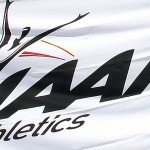Antidoping – In response to a number of media inquiries into comparisons between the annual expenditure of the IAAF and the world governing body of cycling UCI, we would like to underline a number of facts for the record.
IAAF expenditure on Anti-doping
At the risk of sounding repetitive by reiterating what we have said before, the IAAF spent USD $2,300,000 in 2014 on our anti-doping programme on testing alone.
When the cost of administrative support (10 full-time members of staff) and litigation is also added, it brings the overall expenditure up to more than USD $3,000,000.
This is, without doubt, the highest proportion of an annual budget of any equivalent sporting federation or organisation.
The International Federation responsible for world cycling – the UCI – spent approximately CHF 1,100,000 (approximately USD $1,130,000 at current exchange rates) on anti-doping in 2013 via what is known as the ‘Cycling Anti-Doping Foundation’. It is our understanding that this contribution has even been reduced since then.
The vast majority of cycling’s anti-doping budget comes not from the UCI itself but comes from contributions by the pro-tour cycling teams, the event organisers and the riders themselves.
We know that 80% of the money in testing in cycling goes to male members from the UCI pro-tour team. The teams do not spend to test female riders or cross-country or track cycling or other cycling disciplines. It is the reality of the UCI system that their budget of around CHF 1,000,000 is used to cover all the disciplines of cycling.
At the IAAF, the federation’s own money is spent to cover every aspect of the sport – from track and field to cross country, road running, walking and mountain running – men and women.
If the intention is to imply that ‘cycling’ does more and spends more than ‘athletic’ worldwide (rather than referring to the facts about what the respective federations are doing, and which the IAAF hope we have just done) then we propose that media refer to the WADA annual sport by sport comparison.
This comparison shows that the sport of Athletics did over 25,000 tests worldwide in 2014 while cycling did 23,000 tests, so logic suggests that athletics spends more than cycling worldwide in the field of testing.
We regret the attempt by a selected group of media to set Athletics against Cycling, since the IAAF has the greatest respect for the work being done by the UCI in the field of anti-doping. There is strong collaboration between the two organisations in areas of experience sharing, trend-mapping and general anti-doping intelligence.
We also strongly believe that these two international federations are leaders in the field and should be held up as an example to others in the fight for Clean Sport.
http://www.uci.ch/news/article/the-uci-publishes-its-204-annual-report/
On p 69: the UCI explains that the funding comes from pro-teams.
On p 78-79 of the financial report you see the CADF (Cycling Anti-Doping Foundation) Funding line with a figure of CHF 1,100,000.


























